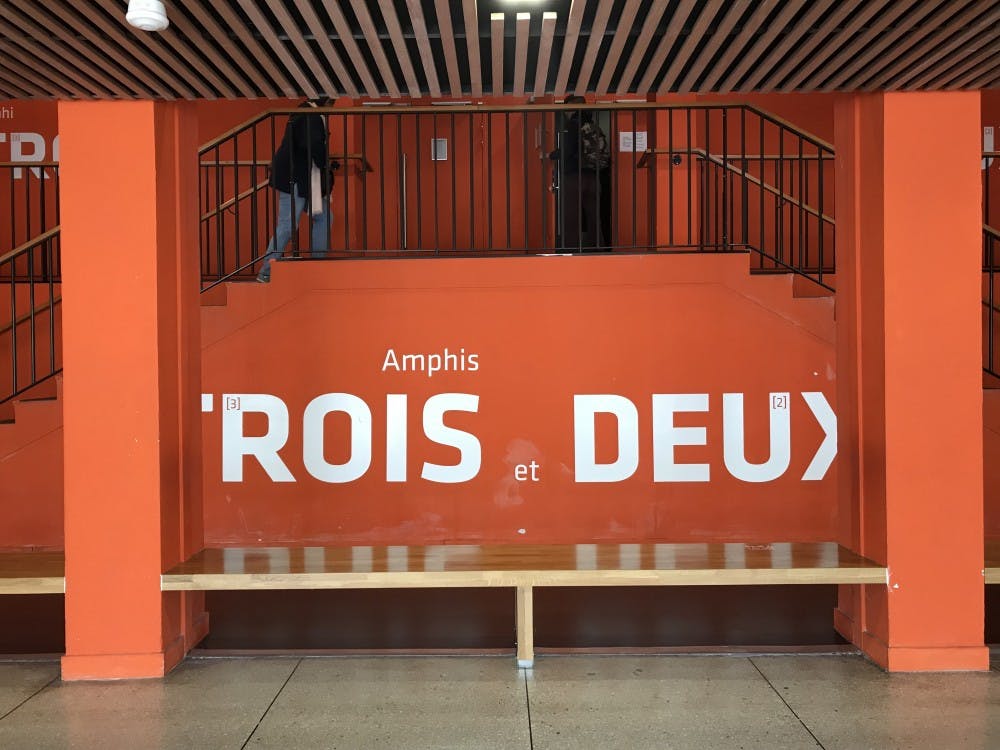Few feelings exist that are worse than nerves and dread mixing in one’s stomach. This feeling overwhelmed me as I sat in class during the first few weeks at university in Aix-en-Provence, France, where I’m studying abroad.
The class involved two hours of group work, a daunting assignment. Our task was simple: prepare a sustainable development pitch for an imagined local government. In English, it’d be easy. In French, I struggled to comprehend the words flying across the table, much less contribute to the project.
My internal distress grew into a paralyzing anxiety and, in that moment, I thought back to a sermon I’d listened to that the Rev. Mona Dale gave a few months earlier at St. Andrew Presbyterian Church in Muncie, Indiana, about the word “compassion.”
Often we think of compassion only as kindness toward another person or living being. At its roots, though, the word literally means “a suffering with another,” according to etymonline.com. As Dale pointed out, it asks you to be vulnerable to the hardships of others, to allow yourself to feel their experiences in their full, brute complexity.
I’m well aware the difficulties of studying abroad hardly merit being categorized as suffering. Nevertheless, that feeling made me wonder about the international students I’ve shared classes with at IU, and how they’ve dealt with language barriers and a new education system.
In other words, my own experience invited me to step into the imagined life of a non-native English speaker in the U.S. And, after some reflection, I’ve realized they’ve got a much tougher draw than I do as a non-native French speaker in France.
My first few weeks at Aix-Marseille University were filled with utter disorientation as I adjusted to a university system very different from the U.S.'s. Although I can grasp the big picture of class lectures, I often wonder if I’m missing important nuances. I badger my professors after class with questions about presentations or changes to the syllabus. In short, it’s been challenging.
Even so, the experience has been catered to me in many ways, much more than it has been for, say, a student from China.
Several times, one of my professors has included quotes entirely in English that take up an entire PowerPoint slide. Today, we even watched a 10-minute video clip entirely in English, without subtitles. My French classmates didn’t protest at any of this. They just continued typing their notes, as if the appearance of a foreign language in class was completely normal.
I can’t even begin to imagine what would happen if a professor did the same thing in an American classroom, perhaps in Spanish. I know I wouldn’t be able to understand a lick of it.
Apart from illustrating the extent of English’s hegemony in public spaces, these instances have also revealed to me a fundamental difference between the U.S. and the rest of the world: We are really terrible at co-existing with languages that aren’t English.
Even President Trump has further driven this sentiment.
“This is a country where we speak English, not Spanish,” Trump said during a presidential debate in 2016.
Regardless of the politics attached to statements like these, this sensibility reflects a more pervasive cultural attitude we seem to hold, even as the percentage of U.S. residents over the age of 5 who speak a language other than English at home has surpassed 20 percent, according to the United States Census Bureau.
We’re not all that open to entertaining notions of bilingualism, something that affects international students who are studying in the U.S.
At IU, international students have existed in my classes, but always in my periphery. I’ve neither had a personal conversation with an international student nor offered them assistance. I regret the twinges of exasperation I’ve felt in the past during sometimes-lurching, sometimes-hard-to-understand presentations given by international students.
I feel this regret even more acutely right now, especially since I’m preparing for a presentation at the moment and readying myself for the winces at my inevitable mispronunciations. Because it’s hard. Really, really hard.
At the end of the class, my fellow group members turned to me and began asking me questions. Where was I from? How long was I here for? They told me if I had any questions, I shouldn’t hesitate to ask.
Later, during a conversation with another French classmate, she commented it must be difficult taking classes in a foreign language. I nodded, happy someone understood.
These aren’t things I’ve ever said to an international student, and I’m ashamed of myself for it. But I do plan on saying them in the future, and they’ll be coming from a place of shared experience and shared understanding — compassion, one might say.




